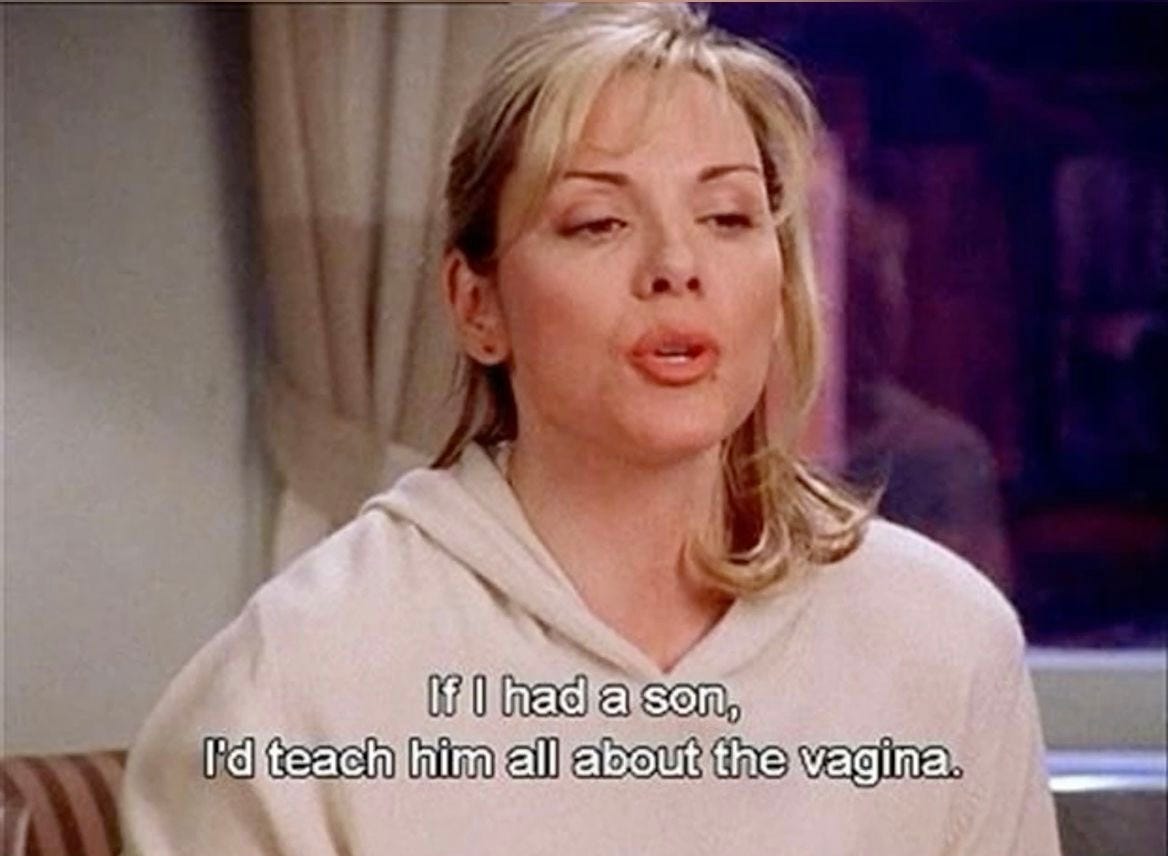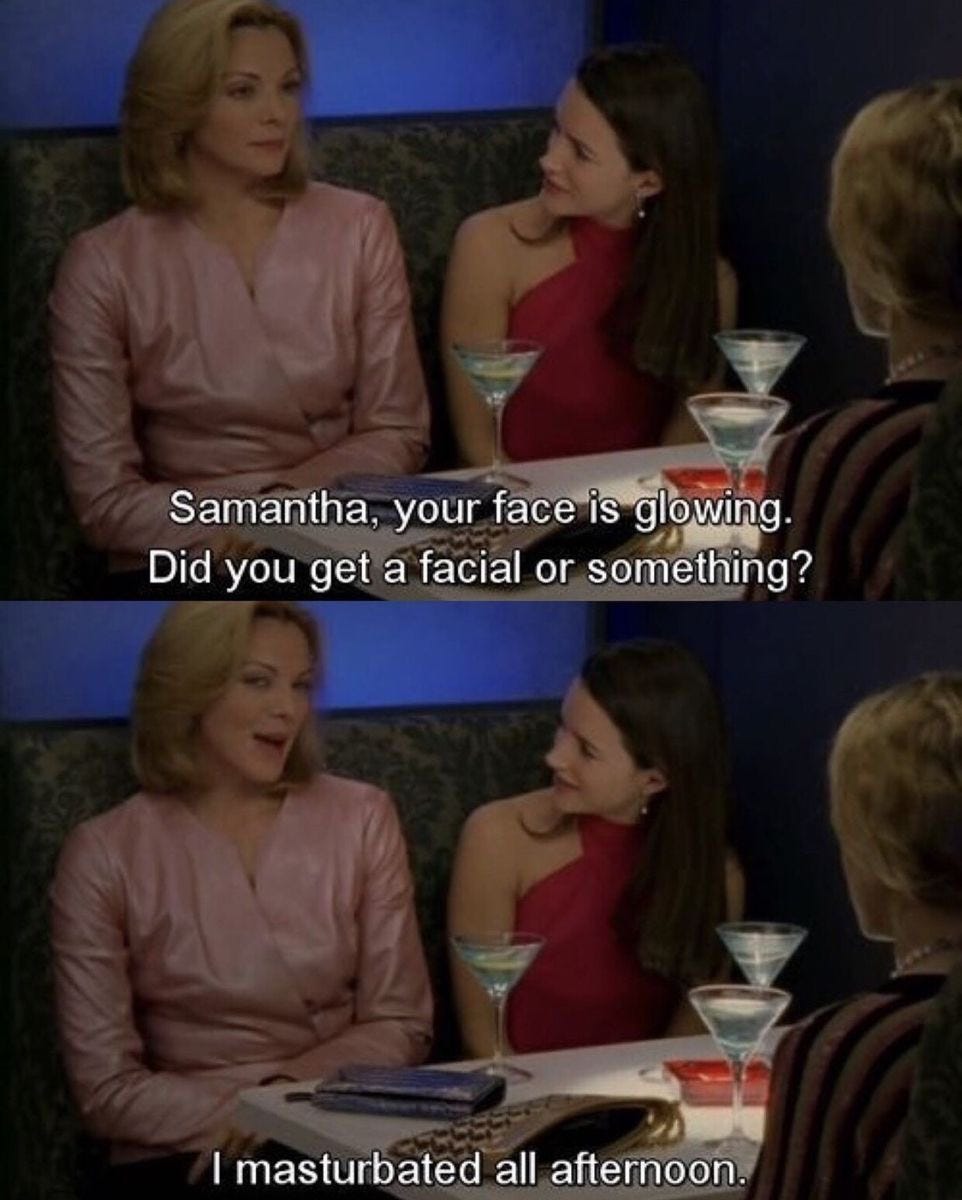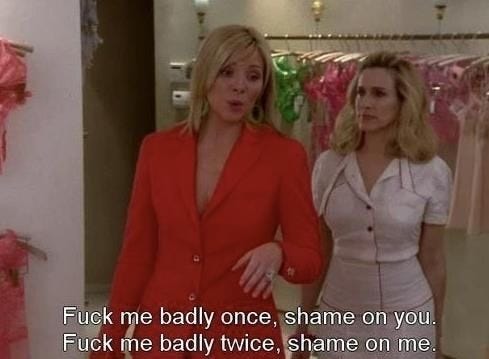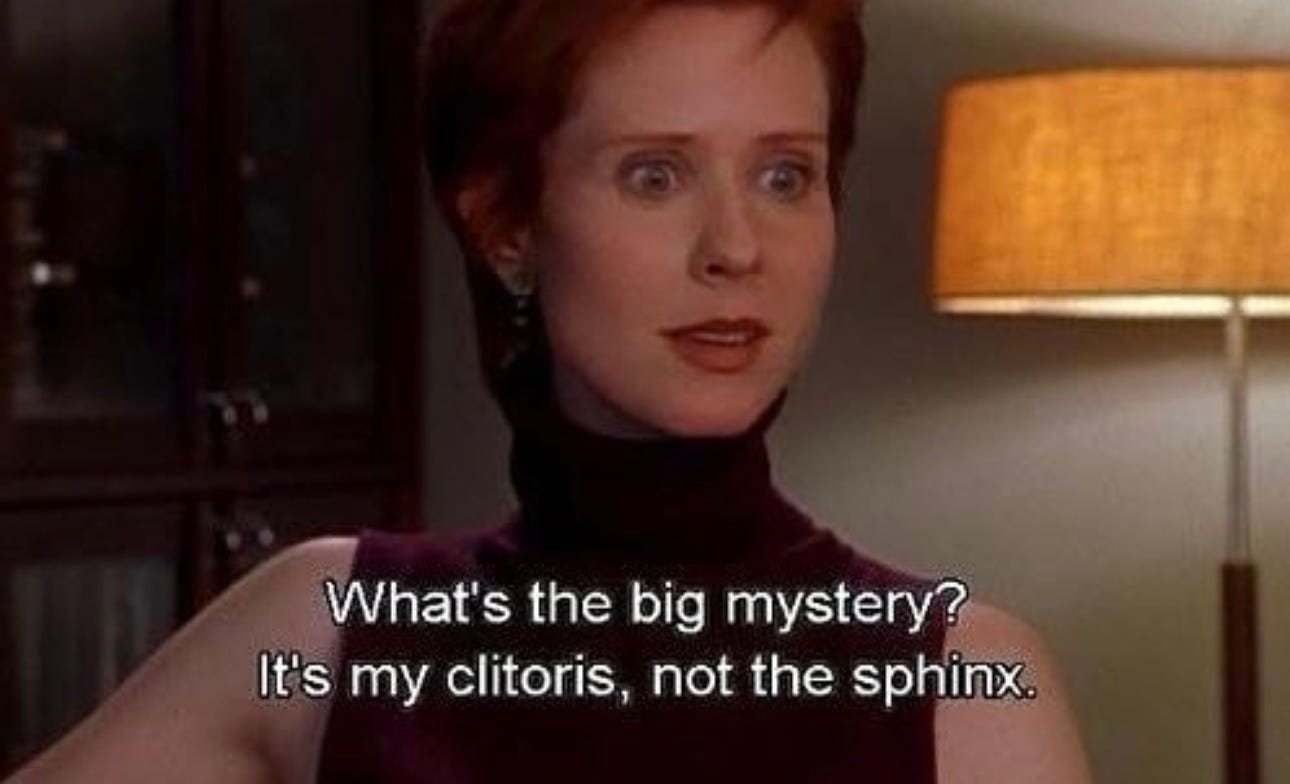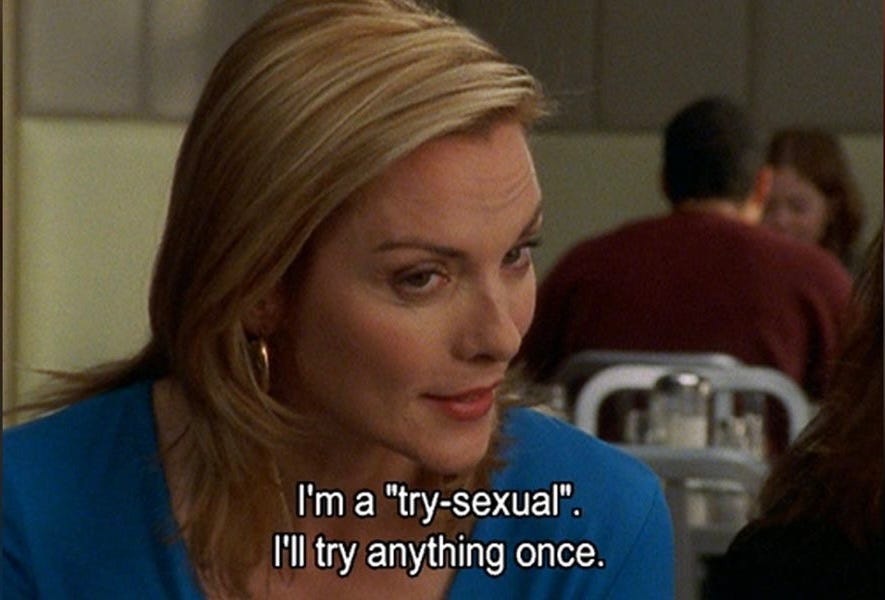Sex and the Pity: We never got taught about pleasure in school
How Sex and the City taught us more about pleasure than school ever did
For many of us, Sex and the City was something we chucked on as a lighthearted watch because our mums, older sisters, cousins, had been banging on about it since we before we were old enough to watch it. Most of us came for the fashion and the friendships, but stayed to learn a little something about sex along the way. SATC delivered to many of us important lessons on pleasure, and what it means to ask for what you want sexually - things we never got taught in school.
So I got to thinking, why does a TV show from the late ‘90s teach us more about our bodies and pleasure than actual sex education?
Most of us remember school sex education as something that focused on the biological mechanics of sex—how reproduction works, the changes that happen during puberty, and how to avoid STIs and pregnancy. But it never really went beyond that. Discussions of pleasure? Virtually non-existent. Understanding your body beyond the basics? Rarely covered.
Sex ed’s narrow focus has left a lot of young people without the tools to understand or even acknowledge their own sexual desires. While we can’t (and shouldn’t) rely on TV for all our knowledge, SATC had something to offer that our classrooms didn’t: an honest, open exploration of pleasure.
Let’s start with Samantha Jones, the most sexually confident and adventurous of the four main characters. Samantha’s unapologetic approach to sex was revolutionary for its time—and still stands out today. She’s not interested in relationships for the sake of appearances or societal expectations; she’s interested in her own pleasure. Whether she’s openly talking about masturbation, experimenting with different partners, or unapologetically pursuing her own desires, Samantha sends a powerful message: it’s okay for women to want sex and to enjoy it.
For many women watching, this was probably the first time they’d seen a character—let alone a woman—embrace sexual pleasure without shame. To the point where it may have even felt close to the edge at times. Society does seem to be evolving now, with characters such as Fleabag also openly discussing sexual pleasure in this way - but I would love to have seen the worlds reaction to Samantha Jones when this show first aired. I would argue that she could be classed as a catalyst for fourth wave feminism but maybe that’s a reach.
‘Carrie Bradshaw knows good sex (and isn’t afraid to ask)’ as the saying goes. She isn’t as bold as Samantha, but her messy romantic escapades (and god were they messy) highlight the importance of figuring out what you want and communicating that with your partner. Carrie’s storylines show that sex can be emotionally complicated, and that learning what makes you happy is just as important as figuring out what works in a relationship. Also note the peeing on the political situation - this is a real sexual fetish getting a look in! Granted she didn’t go for it, but representing these topics in the first instance is more than our schools are doing.
Miranda Hobbes isn’t afraid to admit when sex isn’t working for her. In the episode where she dates a guy who insists on talking dirty during sex (and she hates it), she speaks up. Miranda’s blunt approach teaches us that communication is key. She reminds us that sex isn’t just about going along with what your partner wants—it’s about expressing what you want too.
Charlotte York, seemingly the most conservative of the group, might look like an unlikely champion for pleasure, but her character goes through a transformation. Charlotte struggles with accepting that her husband Trey can’t satisfy her sexually. Her decision to finally speak out and take control of her sexual happiness is a huge moment in the show—one that resonates with anyone who’s ever felt like they were putting their partner’s needs before their own. Charlotte’s arc proves that pleasure isn’t something to be ashamed of, even if it takes a little longer to embrace it.
I have also lately likened myself to Charlotte in the episode where she discovers how good a vibrator can make her feel, to the point where the other girls have to intervene because she keeps cancelling plans and won’t leave the house. I’m with you sister - a whole new world has been opened for me at the age of 25. No one’s going out in winter anyway.
So, what’s the takeaway here? While SATC might be a guilty pleasure for some, it did something revolutionary: it normalised conversations about women’s pleasure and sexual autonomy—conversations that many schools shy away from.
If we were taught more about pleasure in school, maybe we wouldn’t have to rely on TV shows to fill in the blanks. Teaching about pleasure isn’t about encouraging young people to have sex—it’s about giving them the knowledge and confidence to understand their bodies and communicate their needs. Sex ed that focuses solely on risk—like STIs and pregnancy—misses out on the full picture. It leaves young people, particularly women, without the tools to have healthy, respectful, and enjoyable sexual experiences. Maybe we should all follow Samantha in being a bit more “try-sexual”.





